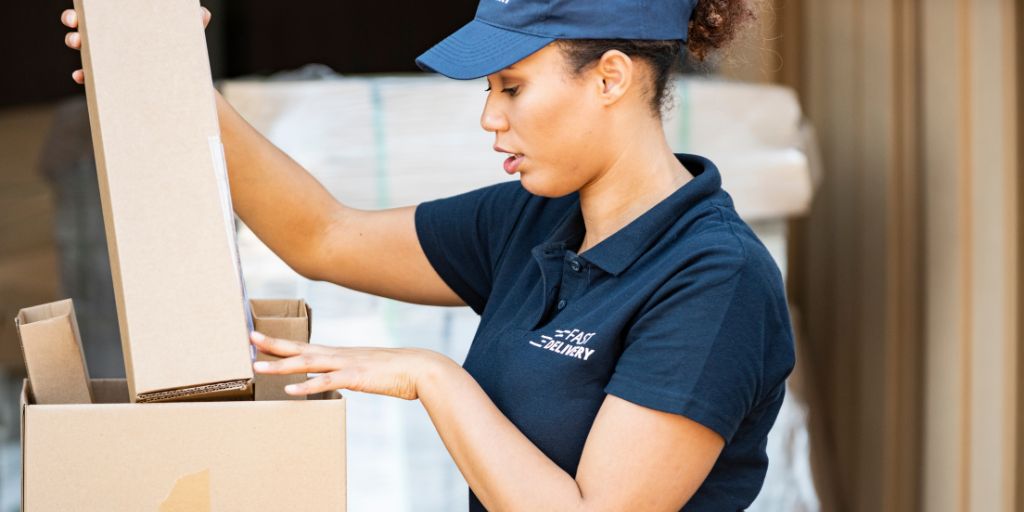Effective final mile logistics strategies are increasingly important since pandemic sent consumers into lockdown and online marketplaces. Understanding how to manage the last leg of a freight shipment is vital to managing costs and protecting customer experience.
That’s not easy when the final mile is often the most expensive piece in your transportation puzzle – as much as 53 percent of your transportation cost.
“Logistics and delivery providers are trying to meet the growing demand for competitive omnichannel delivery services demanded by shippers and end customers, including same-day delivery, ship-from-store, and returns. These require greater speed, and agility, and often a restructuring of resources, technologies and operational processes,” according to the State of Last Mile Logistics report.
What Is Final Mile Delivery, and Why Is It on the Uptick?
While final mile logistics and related shipping services have long been a staple of the modern transportation process, they are becoming more critical and in demand.
Final mile delivery, or last mile delivery, is the final step in a freight shipment’s journey to a customer. Demands on this last leg of a freight shipment journey are increasing, and so, too, is the complexity. You can attribute this uptick to several factors that are directly impacting commercial and residential final-mile delivery:
- The e-commerce shipping demands fueled by online purchasing increased significantly since 2020, driving up final-mile shipping demand exponentially.
- The demand for faster, more reliable tracking and monitoring of final-mile deliveries continues to increase with better freight market insights.
- Fears are decreasing around online orders delivered to home doorsteps or shipments that require set-up, installation, or other white-glove services.
- Direct-to-consumer shipping skips many of the usual intermediaries and has significantly impacted shippers’ parcel management and final-mile logistics.
- More shippers are looking to improve brand image by shifting to more sustainable options such as final-mile tracking, load sharing, and local shipping services.
Final-Mile Delivery for Niche Markets
Today, final-mile delivery tracking and shipping optimization are integral to supply chain visibility and operations.
How TMS Improves Final Mile Logistics
Final mile freight delivery is the most crucial stage of any shipment, and it is also where things often go wrong. Issues with final drop-off and delivery can significantly increase shippers’ costs. According to AMCS Group, each failed delivery costs the U.S. shipper $17.78, on average, and even worse, an estimated 5% of all final-mile delivery attempts fail in some fashion. Data like this demonstrates the need for integrated and innovative transportation management system solutions
New technology and innovative advancements help shippers stay on track and manage last-mile services. An efficient TMS setup that uses cloud-based analytics, real-time tracking, and on-demand notifications can significantly improve final mile logistics. This is achieved through optimized planning, short-term and long-term goals, and using an effective TMS system designed for final-mile tracking and best supply chain visibility.
Using Shipment Visibility to Improve Customer Experience With Final Mile Deliveries
Today, technological advances make it possible for shippers to maximize final-mile efficiencies and improve customer experiences. Shipment visibility is attainable with integrated tracking systems, cloud-based storage, collaborative dashboards, final-mile tracking numbers, global platforms, and advanced machine learning automation. Everything from logistics compliance to driver productivity is improved.
Maximize Final Mile Logistics Services by Partnering With MercuryGate Today
With continued pressure from manufacturers, retailers, customers, and consumers alike, the need for effective final-mile delivery increases. Partnering with a provider experienced in TMS applications makes it easier to deliver the very best customer experience.
Download this infographic and see everywhere you will find MercuryGate Final Mile.
To learn more about the technology tools that can help you apply a consumer-focused approach to your transportation strategy, download our eBook.
“Final Mile Technology: Improving the Customer Experience” offers more advice for using TMS and shipment visibility to improve final mile delivery and customer experience.


